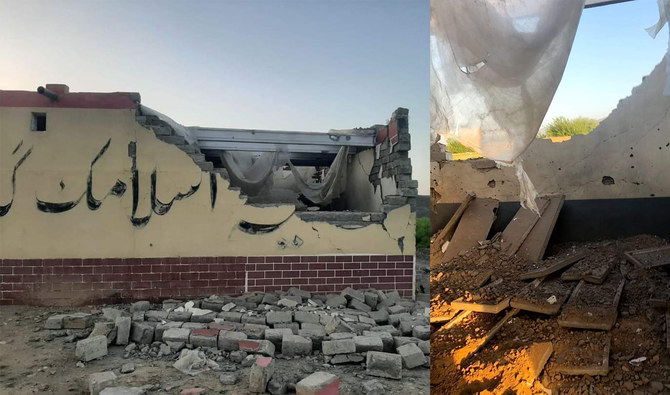DERA ISMAIL KHAN, Pakistan: Militants detonated a bomb at a girls school in a former stronghold of the Pakistani Taliban in the country’s volatile northwest, badly damaging the structure, police said Thursday. No one was harmed in the overnight attack.
There was no immediate claim of responsibility for the attack late Wednesday that targeted the only girls school in Shawa, a town in the North Waziristan district in the Khyber Pakhtunkhwa province bordering Afghanistan, local police chief Amjad Wazir said.
UNICEF condemned the bombing as “despicable and cowardly act that could jeopardize the future of many young and talented girls.”
According to the police chief, the attackers first beat up the school guard before setting off the explosives at the private Aafia Islamic Girls Model School, which has 150 students.
Suspicion is likely to fall on Islamic militants and specifically the Pakistani Taliban, who have targeted girls schools in the province in the past, saying that women should not be educated.
In a statement, Abdullah Fadil, the UNICEF representative in Pakistan, said the “destruction of a girls’ school in a remote and underserved area is a heinous crime detrimental to national progress.” He cited Prime Minister Shehbaz Sharif statement on Wednesday declaring an education emergency and pledging to work toward enrolling 26 million out-of-school children.
Pakistan witnessed multiple attacks on girls schools until 2019, especially in the Swat Valley and elsewhere in the northwest where the Pakistani Taliban long controlled the former tribal regions. In 2012, the insurgents attacked Malala Yousafzai, a teenage student and advocate for the education of girls who went on to win the Nobel Peace Prize.
The Pakistani Taliban, known as Tehreek-e-Taliban Pakistan or TTP, were evicted from Swat and other regions in recent years. The TTP are a separate group but a close ally of the Afghan Taliban, who seized power in Afghanistan in 2021.
The Taliban takeover in neighboring Afghanistan has emboldened the Pakistani Taliban.












